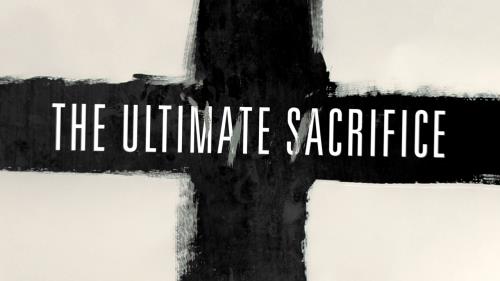-
The Heart Of The Matter Series
Contributed by Timothy Peck on Nov 28, 2017 (message contributor)
Summary: The heart of our problems are deeper than superficial behaviors. Before we can change, we need our hearts to be changed.
Why do people treat each other so badly? Why do spouses break their wedding vows? Why do people act out in violence and hatred toward others? Why do racism and hate crimes still exist in our world? Why are people filled with greed? Why do we act with treachery and deception toward each other?
The question of why people do what they do is a question that’s plagued the human race since history began. When I was a student at Chaffey College, I took an ethics class where we had to read a book about different views of human nature. That book presented several different theories as to what’s at the heart of the human race’s problems.
The Christian faith has its own distinctive belief about what’s at the heart of the human problem. The Christian explanation is captured in the classic Christmas carol "O Holy Night." One of the lines of that carol goes, "Long lay the world in sin and error pining." The word "pining" is an old English way of saying, "wasting away." So the song tells us that the world was wasting away in sin and error when Christ was born.
The Bible claims that the way things are in our world isn’t the way they’re supposed to be. God created a good creation, but God’s good creation has been infected with something called sin. Sin is essential the human race’s rejection of God and God’s ways, our declaration of independence from God. Creation has fallen from it’s original good intention, and become a place of pain and darkness, a place where people murder and hate each other.
As followers of Jesus we believe that sin is the heart of the human problem. Really Christmas is our celebration of God’s plan to do something about the problem. That’s why the old Christmas carol continues on to describe the birth of Christ as "a thrill of hope, the weary world rejoices, for yonder breaks a new and glorious dawn." That’s what our celebration of advent and Christmas is all about, a new and glorious dawn with the birth of Christ.
However even among those who agree with the Bible’s claim that sin is the heart of the human dilemma disagree on how to best tackle this problem of sin. Today we’re going to talk about getting to the heart of the matter. We’ve been in a series through the New Testament book of Mark called Following Jesus in the Real world. Today as we continue our series we’re going to look at Jesus’ debate with a group of religious scholars about how to best root away sin. We’re going to see that although Jesus and this group agreed on the problem, they differed greatly about how to get to the heart of the matter.
1. Focusing On Surface Issues (Mark 7:1-5)
Let’s look at how this debate between Jesus and a religious group starts in vv. 1-5. Now you get the sense from Mark that this group of Pharisees is an official delegation sent from Jerusalem to investigate Jesus. They come with their scribes, who were experts in the interpretation of the Jewish law. You might think of the scribes as their attorneys.
Now the Pharisees were a subgroup within Judaism. After 2,000 years of church history, we get a negative picture in our minds when we hear the word "Pharisee" because of how we know that they responded to Jesus. But to people back then, the Pharisees were heroes, not villains. The Pharisees were all lay people, not any priests among them. They were a reform movement who’s passion was to help ordinary people in Israel learn to live our their devotion to God. They believed that every detail of the Old Testament law was to be applied to everyday life.
The Pharisees believed that every person ought to strive for the same level of godliness that God required of the Jewish priests who served in the temple in Jerusalem (Jacob Neusner, The Idea of Purity in Ancient Judaism, p. 65). They believed that if Israel was to be a nation of priests as the Old Testament claims, then God required all people in Israel to live by the same standards he required of the Jewish priests. So the Pharisees expected a higher level of obedience and commitment among the people than the Old Testament required of people. If we say, "A person’s home is his castle," the Pharisees would say, "A person’s home is his temple." In the Old Testament law God required the temple priest to go through a special washing ritual before eating a meal that came from the temple offering. Now the temple priest only had to go through this washing ritual when in the temple and eating a temple sacrifice as a meal. But the Pharisees expanded that requirement to apply to all Jewish people during all meals. They believed that all Jewish people ought to follow the example of the temple priests by washing before each and every meal.

 Sermon Central
Sermon Central



